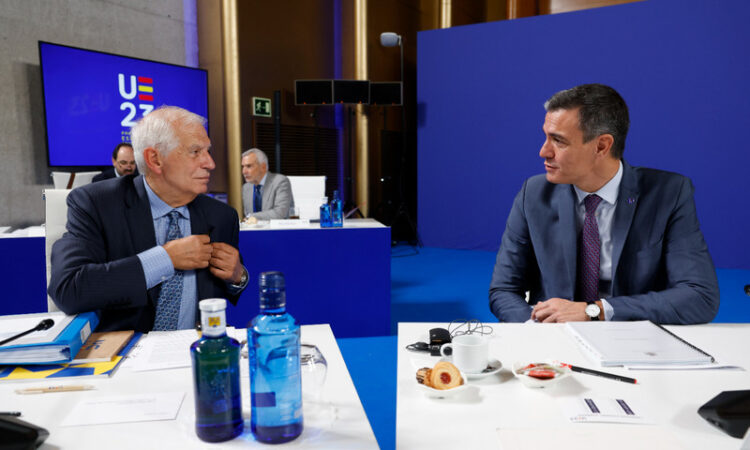
The EU may extend its naval military operation Irini off Libya to include Tunisia, as a further means to prevent people from fleeing on boats towards Italy.
“For that, I need certainly the agreement of Tunisia, because it has to be done on territorial waters with Tunisia and the mission was conceived for Libya,” said Josep Borrell, the EU’s foreign policy chief on Friday (6 October).
His comments were made ahead of the meeting of EU heads of state and government in Spain’s city of Grenada, where migration is among the issues on the agenda.
Irini is named after the Greek goddess of peace, Eirine. For the EU, that equates to a military operation launched in early 2020 to implement an UN arms embargo on Libya.
But it was also tasked to curtail migrant smuggling and train the Libyan coast guard, the latter element of which has since been suspended.
The operation has also run into credibility issues amid internal disputes that it lacked the necessary assets to carry out its duties, according to an EU document from earlier this year.
Despite the drawbacks, Borrell said he would call a meeting with the Tunisians before year’s end to discuss options.
The Irini idea comes on the back of a 10 point-plan announced last month by European Commission president Ursula von der Leyen during her visit to the Italian island of Lampedusa.
Among those points was a call to expand naval missions in the Mediterranean as part of a wider effort to curtail boat embarkations from north African states.
But Borrell also envisaged deploying people to secure borders in the Sahel, a semi-arid region of western and north-central Africa.
The region has seen a succession of coups over the past few years, recently in Gabon and then Niger in late July.
The move is a further indication of the European Union’s renewed focus of getting countries of origin and transit to stem migration, as it sends one of its top commissioners, Margaritis Schinas, next week to Gambia and Mauritania.
An agreement over the summer with Tunisia had also been billed by von der Leyen as a blueprint for future deals. But it has already run into trouble with Tunisia’s autocrat president, Kais Saied.
Saied had earlier this week declined to accept EU funds after the European Commission had wired €60m into the Tunis treasury.
The money comes from a separate budget line to shore up Tunisia’s post-Covid recovery and is not linked to the July agreement.
“Tunisia is free to cancel its formal disbursement request and wire back the money to the EU budget,” said Oliver Varhelyi, the EU’s neighbourhood commissioner, on X (formerly known as Twitter.)
The apparent acrimony could complicate relations between Tunisia and the European Union, posing questions on whether Tunis would ever agree to having European warships enters its territorial waters.






